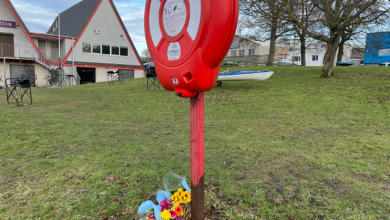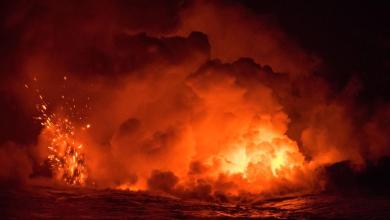‘There has been this massive quieting’
New research exposes the lasting consequences of the BP oil spill in the Gulf of Mexico. After placing microphones at the bottom of the sea, scientists were startled by their findings, per reports by Nola.
What’s happening?
Ten years after the Deepwater Horizon oil spill, whale and dolphin populations are still declining, new research indicates.
Scientists at UC San Diego’s Scripps Institution of Oceanography submerged microphones 3,000 feet below the surface of the Gulf of Mexico to analyze deep-sea audio recordings and estimate whale populations. Using an algorithm, the researchers were able to identify and count the whales’ echolocation “clicks,” estimating population numbers.
Since some of the species in the study were expected to fully recover within 10 years, the researchers expected populations to show signs of recovery. However, their findings revealed a much darker reality.
Published in Nature Communications Earth and Environment, the study determined that numerous whale and dolphin species have declined significantly. Sperm whale populations may have declined by as much as 31%, while certain dolphin populations may have dropped by 43%.
What’s more, beaked whales, a deep-sea species, experienced declines of up to 83%.
Watch now: How bad is a gas stove for your home’s indoor air quality?
Why is the new study important?
The Deepwater Horizon oil spill in 2010 was the largest marine oil spill in the petroleum industry, releasing 134 million gallons of oil in the Gulf of Mexico and killing millions of animals. Years after the spill, marine species are still struggling to recover.
The new research provides an assessment of whale and dolphin populations, underscoring the long-term impact this disaster still has on the environment. While prior assessments indicated the populations would be on a recovery trend by now, the study shows that these populations are still in decline.
Researchers at other universities noted the impact of the new study, emphasizing the long-term consequences of the oil spill in 2010. Professor of marine biology at Duke University Andrew Read told Nola the research provided “direct measurements indicating that we’ve had significant and widespread declines in these animals’ populations.”
“There has been this massive quieting in parts of the Gulf of Mexico that were affected by the Deepwater Horizon spill, either because the animals have left or they’ve died,” Read continued.
What’s being done about the long-term impact of oil spills?
BP has spent about $69 billion on cleanup efforts in the 10 years following the spill. However, the new research study shows that the whale and dolphin populations are taking longer to recover than initial assessments believed.
Scientists are continuing to research ways to restore habitats and wildlife populations after environmental disasters, such as the Deepwater Horizon spill.
Join our free newsletter for good news and useful tips, and don’t miss this cool list of easy ways to help yourself while helping the planet.
Source link


